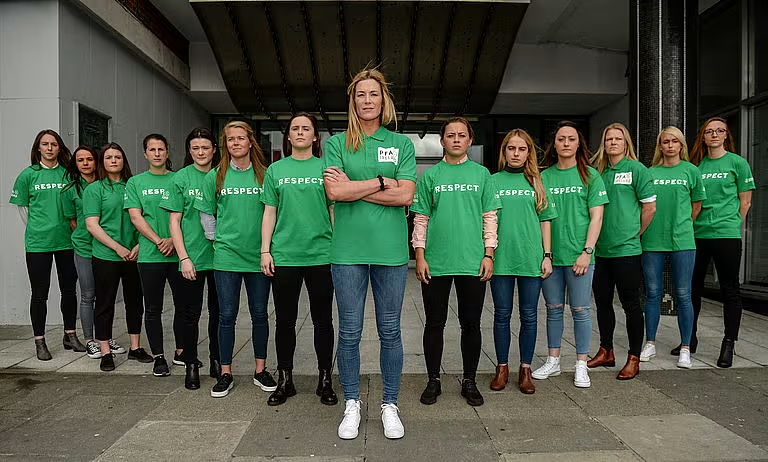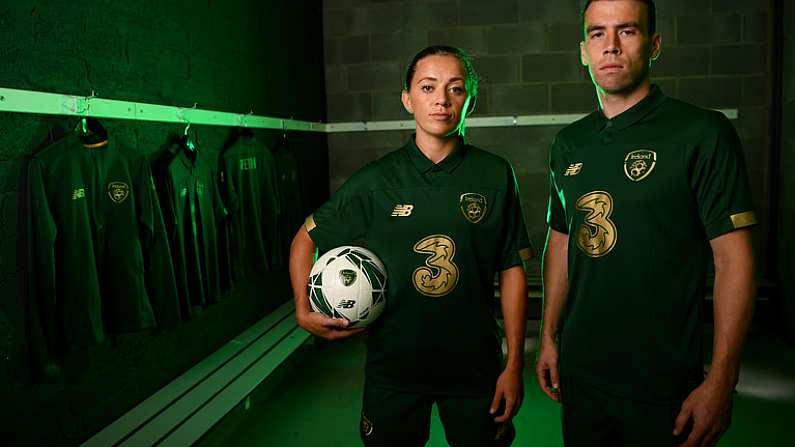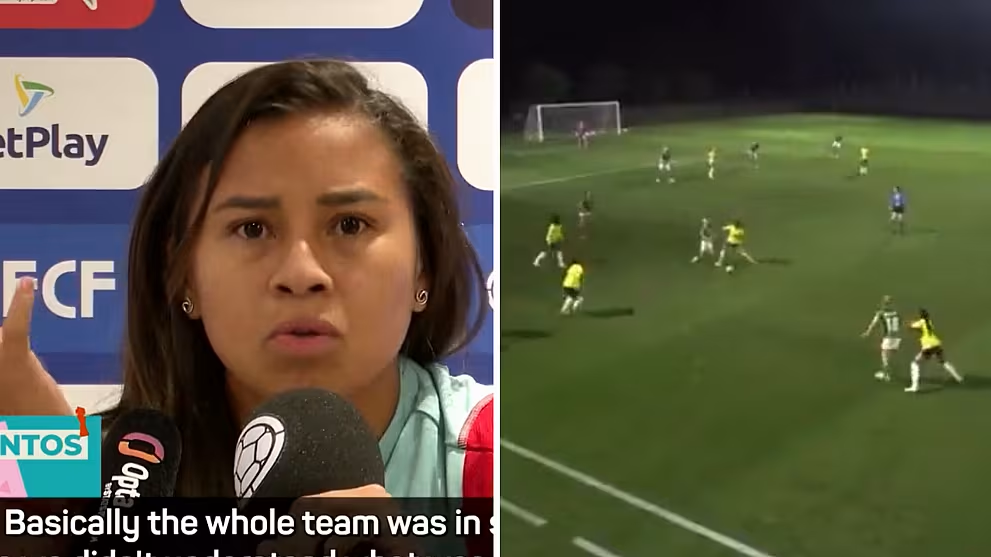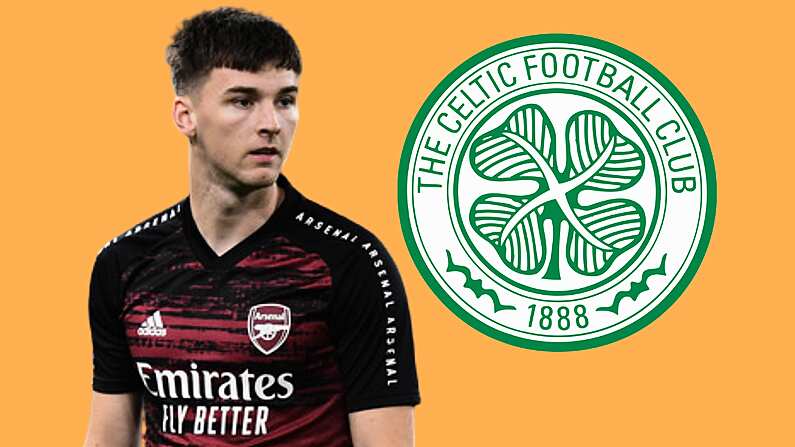As Ireland prepare for their World Cup debut, it's hard not to think back to just how bleak the situation looked for the women's team around six years ago.
In 2017, players from the national team gathered in front of the media in Liberty Hall, with the threat of strike action due to the appalling conditions they were handed with while on international duty.
Players were forced to borrow tracksuits and hand them back to FAI officials having changed out of them in airport bathrooms. Playing for the women's national team often came at the personal expense of the players themselves.
After requests for improved working conditions, payment for international appearances, and the mere suggestion of having their own kit for away games were all shut down, the Ireland team gathered the country's media at Liberty Hall, and said that enough was enough.
READ HERE: Matches That Made Us: How Beating The Matildas In Tallaght Paved The Way To Australia
It was a seminal moment for the side, and several of the players who took a stand that day will be part of the squad on Thursday, when the first ever international tournament journey for an Irish women's team begins.
Áine O'Gorman was there that day, as were Louise Quinn, Niamh Fahey, Ruesha Littlejohn, and Diane Caldwell. Alongside them was 22-year-old Katie McCabe, who will lead Ireland out in Sydney on Thursday, now as the team's captain.

4 April 2017; Republic of Ireland Women's National Team captain Emma Byrne, centre, with team-mates, from left, Karen Duggan, Aine O'Gorman, Claire Shine, Niamh Fahey, Jetta Berril, Ruesha Littlejohn, Niamh Reid-Burke, Katie McCabe, Julianne Russell, Megan Campbell, Diane Caldwell, Stephanie Roche, and Louise Quinn following a women's national team press conference at Liberty Hall in Dublin. Photo by Cody Glenn/Sportsfile
McCabe became the latest athlete to contribute to The Players' Tribune this week, ahead of what she says will be an emotional World Cup bow, and she remembered not only that fateful day at Liberty Hall, but the role played by men's team captain Seamus Coleman in pushing the FAI even further several years later.
READ HERE: Ranking Every Nation's Home Kit At The 2023 FIFA Women's World Cup
Katie McCabe remembers Seamus Coleman's role in resolving pay issues with FAI
In her outstanding Players' Tribune piece, Katie McCabe recalls her early struggles adapting to life at Arsenal, her surprise when handed the Irish captaincy at 21 by Colin Bell, and her excitement to line out at a World Cup, where she says she will reflect on the jounrey that brought her here.
One crucial episode of that journey came in 2017 with the national team's strike action to force better working conditions from the FAI. McCabe sums up in the piece just how tough the conditions were at the time:
It wasn't just the tracksuits and the airport toilets. Many of the players had jobs, and since they weren't getting a penny from the FAI...they were actually losing money playing for Ireland, because they had to take 10 days off work every six weeks.
Thankfully, a resolution was finally reached, and the conditions for the women's national team began to improve.
There was still a huge ways to go, however, and the pay received by the women's team for representing Ireland in the following years still came in significantly lower than that of the men's team.
McCabe goes on to reveal that the captain of the men's team, Séamus Coleman, was influential in ensuring that that was put right:
I got help for the next big step. In 2021 I was at a sponsor shoot with Séamus Coleman, the men's captain, and I casually mentioned how much we were getting paid. He was like, "That's not right. That's not right."
Things had improved after the strike, but we were still nowhere near parity.
Séamus...what a legend. He put me in touch with Ciarán Medlar, the men's rep, who sorted the equal pay deal. There was not even any real resistance, because when Jonathan Hill had been appointed CEO of the FAI in 2020, he said he would work towards parity. I was also lucky to take over after Emma and the other senior players, who had put the foundations in place. I got some acknowledgement as the captain, but really, I was just surrounded by good people.
That pay deal finally enabled us to kick on as a team.
To say they have kicked on is an understatement. The Ireland WNT built from an impressive 2019 World Cup qualifying campaign, to agonisingly missing out on last year's European Championships, before securing a first ever major tournament qualification with victory over Scotland in last year's play-off in Glasgow.
There is no doubt that, six years on from Liberty Hall, they will have the support of the nation when they face Australia on Thursday.
Featured image: Sportsfile













